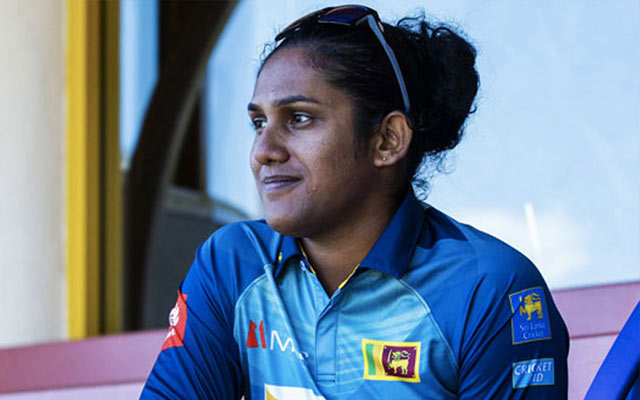The launch of the Women’s Big Bash League by Cricket Australia in 2015 marked a transformative moment for women’s cricket globally, not just in Australia. Following this, the England Cricket Board introduced the now-defunct Super League in 2016, which has evolved into The Hundred. These tournaments sparked a surge of interest among young girls, offering financial support and accelerating the growth of women’s cricket. India, with its deep cricketing heritage, soon joined the movement by establishing the Women’s Premier League, aiming to elevate the sport further in a country where cricket is immensely popular.

Sri Lanka, the current Asia Cup Champions, is set to make its mark with the introduction of a Women’s T10 League this December, as revealed by their captain, Chamari Athapaththu. She also mentioned ongoing discussions about launching a T20 League in Sri Lanka by 2025. Athapaththu emphasised the importance of exposure through franchise leagues, stating, “My teammates need some exposure to playing franchise leagues and learn from the overseas players as well. Because if we play more games, we can develop women’s cricket. I know that, and I hope a similar franchise league is there for Sri Lankan girls in future.” This initiative aims to boost the development of women’s cricket in Sri Lanka by providing valuable opportunities and experience.
Franchise cricket has been a game-changer for local talents, offering them the invaluable opportunity to learn from and compete alongside seasoned international stars. Chamari Athapaththu, the 34-year-old all-rounder, wholeheartedly agrees, sharing, “We have shared the dressing room with England, South African, and Indian players, which is a different vibe, and gives positive things to learn. I learnt a lot of things from Sophie Devine, Beth Mooney, Harman (Harmanpreet Kaur), because they are different characters and players. They know how to manage themselves in the middle. So how they manage the pressure, and handle the other players, is something I learnt a lot.”
She further acknowledged the impact of franchise cricket on the global stage, noting, “So franchise cricket developed all around the world, and now we can see a lot of players go for more runs. Even the team score is going a little bit high—in the Asia Cup, India scored 165, we chased that in the final. Players play different shots, strategies, and planning because we learn from different coaches. Finally I can say franchise cricket developed women’s cricket all around the world.”
Chamari Athapaththu’s exceptional form has been at the heart of Sri Lanka’s remarkable rise in the T20 format. Over the past 12 months, Sri Lanka has dominated, winning 19 of their 25 T20Is—the most by any team in that period. This impressive run includes series victories in England and South Africa, qualifying for the Asian Games final, triumphing in the T20 World Cup qualifiers, and clinching their maiden Asia Cup trophy.
A key factor in this success has been the emergence of rising stars like Harshita Samarawickrama, Vishmi Gunaratne, and Kavisha Dilhari, who have eased the burden on Athapaththu. Reflecting on this, she shared, “Kavisha played really good cricket in the Asia Cup final and is one of the good all-rounders, while Harshita and Vishmi are good batters in Sri Lanka. I always tell them to keep it simple, play your game, don’t take too much pressure. But now, I don’t have any pressure now because the youngsters really lift me all the time in the Sri Lankan team.” This infusion of young talent has not only bolstered Sri Lanka’s performances but also revitalised Athapaththu, allowing her to lead with renewed confidence and less pressure.
Athapaththu credits Sri Lanka’s recent success to head coach Rumesh Ratnayake and the positive culture he’s nurtured within the team. She highlighted the impact of their efforts, stating, “[In the] last two to three years, we have had a good culture in the team. We even restructured our domestic structure, so we have got some good players.” This cultural shift has led to impressive results on the global stage, as Athapaththu noted, “Last 12 months, we have played really good cricket around the world. We’ve beaten some top teams, England, New Zealand, South Africa, West Indies. We continued this in the Asia Cup and beat the best team [India] in the world.” This transformation underscores the importance of strong leadership and a supportive environment in achieving success.
When Chamari Athapaththu joined the Barbados Royals for the Women’s Caribbean League 2024, it wasn’t just about cricket—it was about a deep connection with Kumar Sangakkara, the Royals’ director of cricket. Athapaththu, who considers Sangakkara her role model and affectionately calls him “aiya” (big brother in Sinhala), credits him for her decision to join the Royals. “I got a few offers from CPL, but I chose the Barbados Royals, one because of Kumar Sangakkara, because I love him,” Athapaththu revealed. “He is one of the greatest cricketers ever produced by Sri Lanka. I got that opportunity because of him.”
Their bond is special, as evident from Sangakkara’s frequent mentions of Athapaththu on social media. In fact, three of his last ten posts on X feature her. He even shared a video of himself watching the final moments of Sri Lanka’s historic T20 Asia Cup victory over India from the commentary box in Birmingham. This relationship highlights the powerful influence that mentors like Sangakkara can have on the next generation of cricketing stars.
Chamari Athapaththu, with 139 T20I caps, has spearheaded Sri Lanka’s rise in women’s cricket. Her 3,326 runs include three centuries, highlighted by a 119* in the 2024 Asia Cup and a ton against Australia. Alongside 56 wickets, with a best of 4/29, Athapaththu’s leadership and stellar performances are cementing her legacy as a cricketing icon. Her influence, coupled with the rise of franchise leagues, is providing invaluable exposure and opportunities for young talents in Sri Lanka.